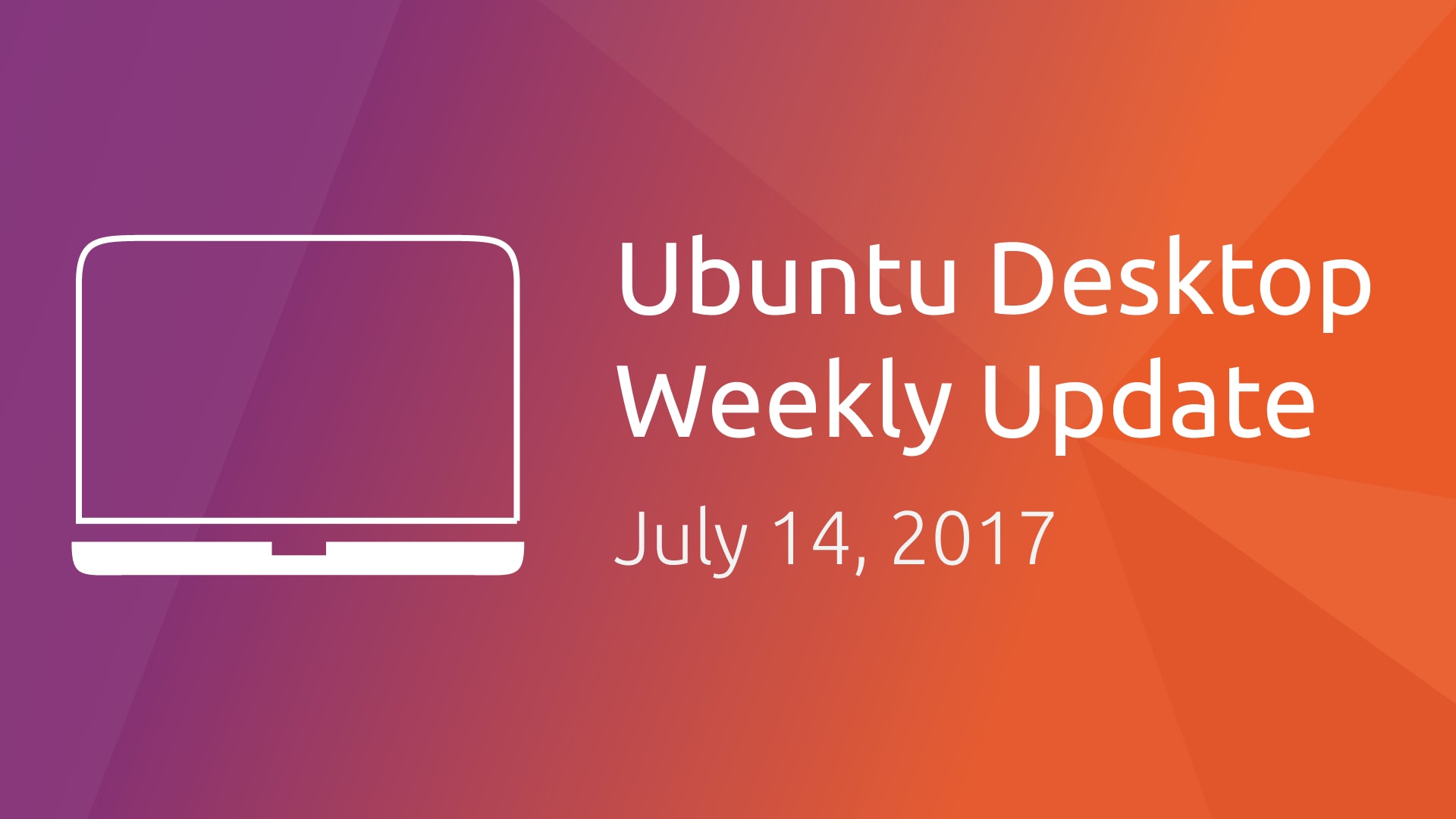Will Cooke
on 14 July 2017

GNOME
GDM has now replaced LightDM. We’re working on the transition between display managers to make sure that users are seamlessly transitioned to the new stack. We’re doing regular automated upgrade tests to make sure everything keeps working, but we’re keen to get your bug reports.
We’ve spent time cleaning up the desktop seeds and demoted 70+ packages. This has freed up a little space on the ISO and makes things generally easier to manage.
Good news: transparent terminals under Wayland now work properly, thanks to a patch from Owen Taylor at Fedora. SRUs for previous releases are underway.
Snaps
We’ve been packaging more GNOME apps as Snaps using the gnome-3-24 platform Snap. By utilising the content interface in Snaps, we can share the common libraries between GNOME apps which means the apps themselves are smaller and the maintenance of the core libraries can happen in one place and be shared by all the Snaps using it. We’ll be publishing a how-to guide and some demos next week.
The Libre Office 5.3.4 snap has been promoted to the stable channel. Thanks for the feedback and testing.
Video & Audio
We’ve proposed an upstream fix for gstreamer-vaapi to work towards accelerated video playback.
We’ve also narrowed down a graphical corruption issue in Totem down to a bug in Clutter and we’re working on a fix.
Daniel’s fun fact for the week: Modern Atom chips (Cherry Trail, Apollo Lake) and cheap notebook chips (Braswell) can play 4K H.265 without breaking a sweat. Even on a 2-watt CPU. Unfortunately they usually come with low quality screens and never HDMI 2.0.
We’ve landed some important fixes to audio in Artful this week, and users of Bluetooth and USB speakers should seen a significant improvement in usability – for example switching to the device automatically on connection and preferring the high quality A2DP Bluetooth profile over the low quality HSP/HFP one. There is an important caveat/bug though, because of the way GDM and PulseAudio interact, you can’t use a Bluetooth audio-device with a screen-reader at the greeter. Once you’re logged in though, everything should work again, and for users who don’t need use a screen-reader, the A2DP profile is now available for use once you’re logged in. We’re working on a proper fix for this with upstreams. If you’re using a screen-reader at the greeter I’d like to hear from you.
Updates
Ubuntu 16.10 Yakkety Yak is end-of-life of the end of July.



